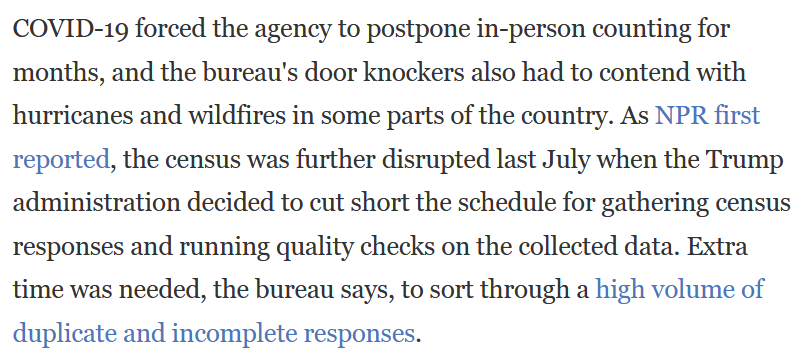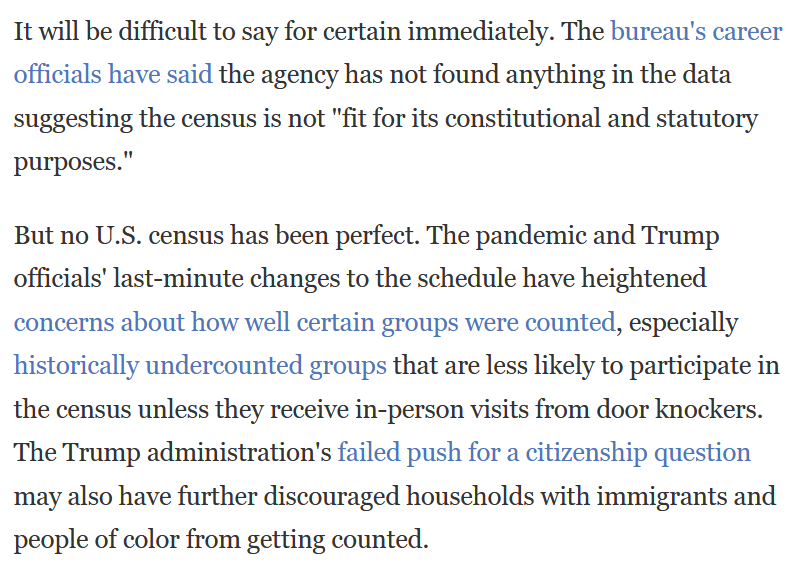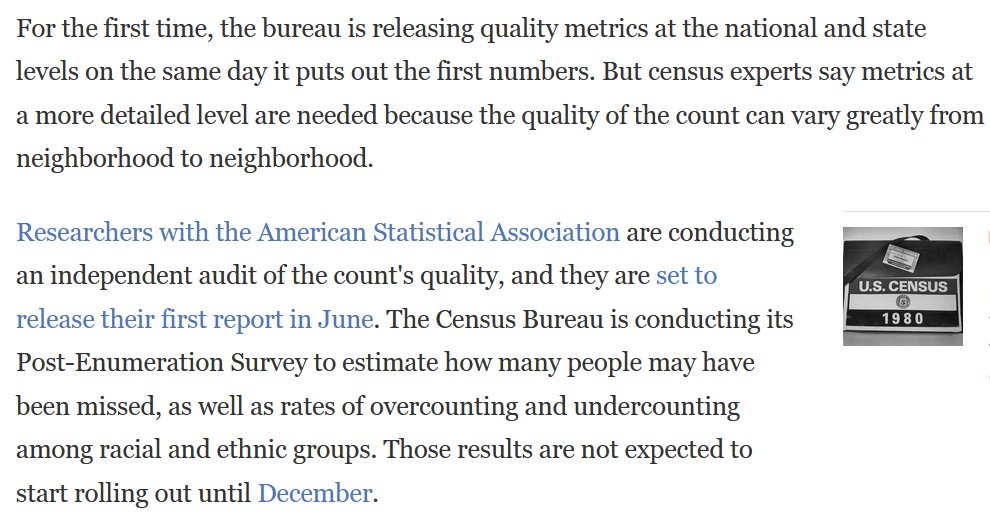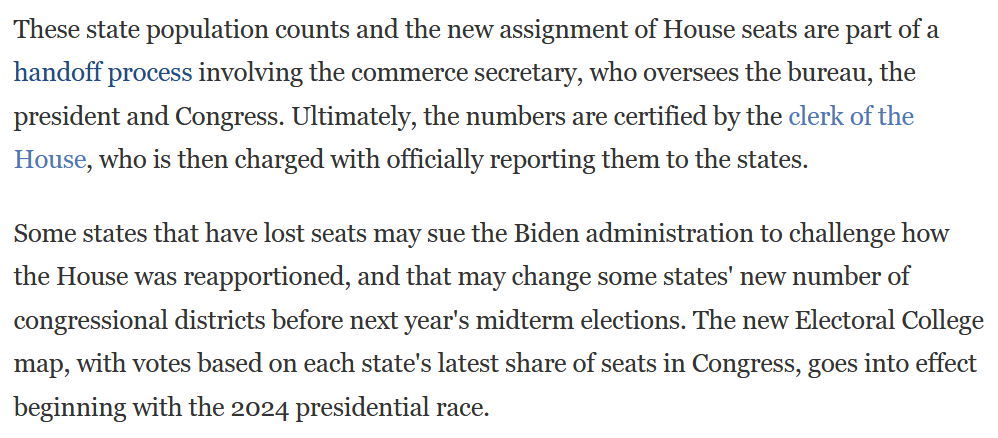Today, your state will find out its new share of votes in the Electoral College and Congress when the first set of 2020 census results are out around 3 p.m. ET
WHAT YOU NEED TO KNOW👇
npr.org/2021/04/26/983…
WHAT YOU NEED TO KNOW👇
npr.org/2021/04/26/983…
2. The 1st set of 2020 census results include the state population numbers used to reallocate U.S. House seats & Electoral College votes. Breakdowns by race, ethnicity, age & sex, plus pop numbers for counties, cities, other smaller areas, are part of 2nd set, expected by Aug. 16
8. (It's worth repeating...) Is there information about race, ethnicity, age and sex, as well as population numbers for counties, cities, towns and other smaller areas, in the first set of 2020 census results that are out today? 

9. When will 2020 census data about race, ethnicity, age and sex, as well as population numbers for counties, cities, towns and other smaller areas, be released? 
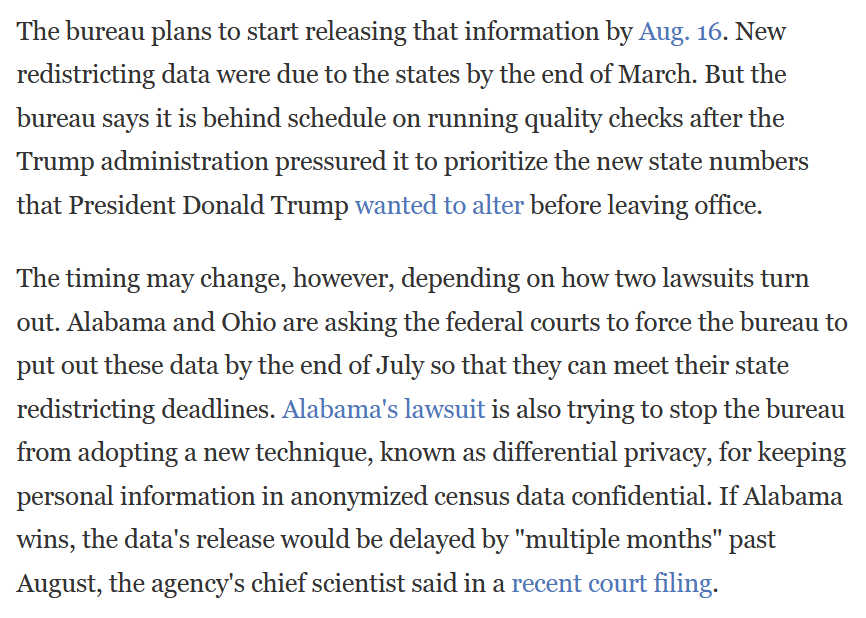
10. Why do some states lose or gain seats in the House after census results are out?
Bc the House's size has basically* stayed the same since after AZ & NM became states in 1912
*ᴇxᴄᴇᴘᴛ ʙʀɪᴇғʟʏ ᴀғᴛᴇʀ Aʟᴀsᴋᴀ & Hᴀᴡᴀɪɪ ʙᴇᴄᴀᴍᴇ sᴛᴀᴛᴇs
npr.org/2021/04/20/988…
Bc the House's size has basically* stayed the same since after AZ & NM became states in 1912
*ᴇxᴄᴇᴘᴛ ʙʀɪᴇғʟʏ ᴀғᴛᴇʀ Aʟᴀsᴋᴀ & Hᴀᴡᴀɪɪ ʙᴇᴄᴀᴍᴇ sᴛᴀᴛᴇs
npr.org/2021/04/20/988…
11. Who is included in the census numbers used for reallocating House seats & Electoral College votes?
People living in the 50 states, plus military & civilian employees of the U.S. government (& family living with them) who are stationed/assigned abroad.
npr.org/2021/04/23/989…
People living in the 50 states, plus military & civilian employees of the U.S. government (& family living with them) who are stationed/assigned abroad.
npr.org/2021/04/23/989…
• • •
Missing some Tweet in this thread? You can try to
force a refresh

